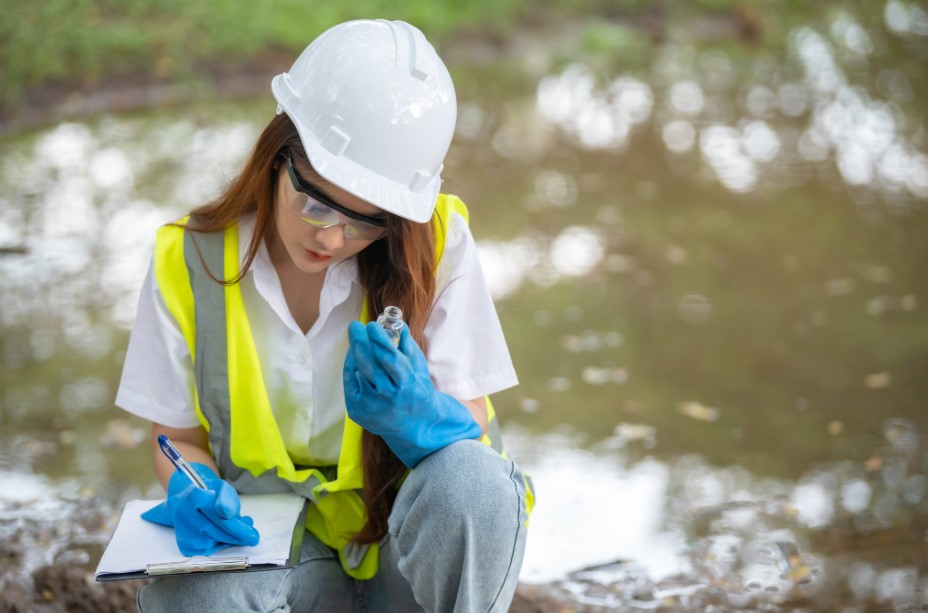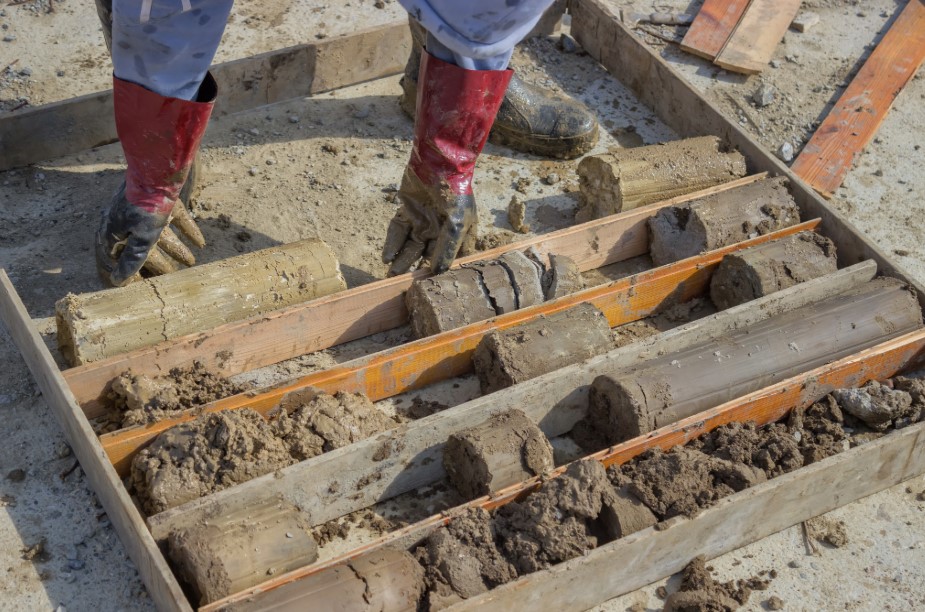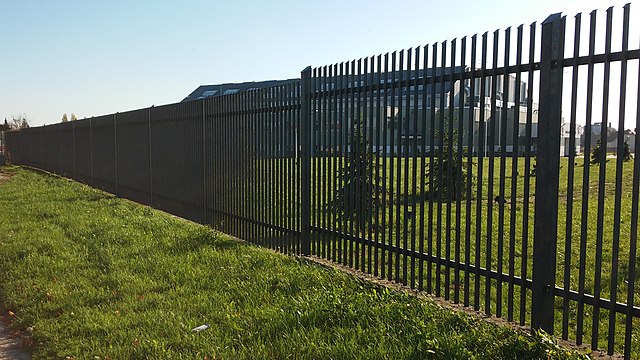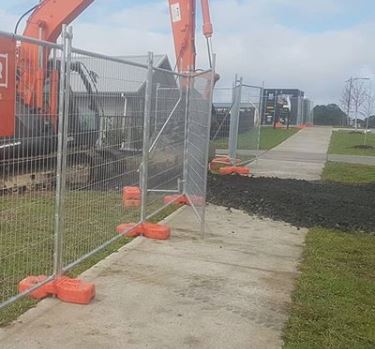
As a New Jersey property owner, environmental protection is one of your responsibilities as your business activities and operations can impact the environment around you. Even with the best efforts to comply with environmental regulations, there may be times when the Environmental Protection Agency (EPA) finds contamination or violations on your property.
In this case, the EPA will require you to take corrective actions to clean up the environmental issues and be in compliance. Here’s what property owners need to know about EPA corrective actions, process, costs, challenges and tips for successful remediation.
What is an EPA Corrective Action?
An EPA corrective action is a process the Environmental Protection Agency uses to address potential or confirmed environmental contamination on a property. This can be soil, water and air pollution and hazardous waste management violations.
The EPA has authority to initiate corrective actions under several federal laws including the Comprehensive Environmental Response, Compensation and Liability Act (CERCLA) and the Resource Conservation and Recovery Act (RCRA). These laws are designed to protect human health and the environment by addressing hazardous substances and waste.
The EPA may investigate on their own or receive reports from other sources such as concerned citizens or neighboring properties. If the EPA determines there is a threat to public health or the environment they will issue an enforcement action requiring the property owner to take corrective action.
Why should Property Owners Address EPA Corrective Actions?
Property owners have a responsibility to ensure their business activities and operations don’t harm the environment. This includes preventing and addressing any environmental contamination on their property. Not complying with environmental regulations and addressing EPA corrective actions can have serious consequences for property owners.
Non compliance can result in fines and penalties from the EPA. Their website states, “Any person named in an interim status corrective action order who fails to comply with the order may be assessed a civil penalty not to exceed $37,500 for each day of noncompliance with the order by the EPA Administrator and will be liable to the United States for payment of such penalty.” Not addressing environmental issues promptly can also mean increased costs for remediation and legal fees.
Ignoring or delaying corrective actions can also harm the reputation of the property owner and their business. This can lead to bad publicity and loss of trust from customers, investors and the community.
On a bigger scale, addressing EPA corrective actions is for public health and the environment. Contamination can have serious impacts to communities, health risks and environmental degradation. By taking action now, property owners can prevent further harm and contribute to a cleaner and safer environment for everyone.
How to address and comply with EPA soil correction notices
If the EPA has issued a soil correction notice to a property owner, you should take action now to address and comply with the notice. Here are the steps:
Read The Notice
The first and most important step in addressing a soil correction notice from the EPA is to read the notice thoroughly upon receipt. This document will have all the details about the specific violations, contamination levels and required corrective actions.

Property owners should read through the details to fully understand the scope and nature of the violation. Also note any compliance deadlines and reporting requirements from the EPA. Knowing these timelines early on will help in planning and making sure all necessary steps are taken on time.
If any part of the notice is unclear, it’s best to contact the EPA or environmental experts to avoid misinterpretation. Taking the time to read the notice thoroughly can make a big difference in the success and efficiency of the subsequent remediation.
What’s the violation and the risks
Once you have read the notice, property owners should assess the specific violation and the risks. This includes the type of contamination, the source and how it can impact human health and the environment.
Property owners can consult with environmental experts to do a risk assessment of the contamination. Eastcoast Site Work and our environmental expert partners can help identify the immediate risks that need to be addressed and guide the development of a remediation plan.
Knowing the risks will also help property owners to anticipate any potential obstacles or barriers that may arise during the corrective action. This can be logistical, financial or regulatory issues that need to be addressed to comply with the EPA’s requirements.
Having a clear understanding of the risks will also help in prioritizing and allocating resources to address the most critical issues first. This can mean less costs and disruption to business.
Remediation Plan
Based on the assessment of the violation and the risks, property owners should develop a detailed remediation plan. This plan should outline the specific steps to address the contamination and comply with the EPA’s requirements.
The remediation plan should have a timeline for each step, estimated budget and resource allocation. It should also specify the methods and techniques to be used to remediate the contamination and how progress and effectiveness will be monitored.
Consult with environmental experts or soil and erosion control contractors like Eastcoast Site Work during this stage to ensure the remediation plan is practical and works. This can also help identify any potential issues or limitations early on.
Get the permits and approvals
Before you implement the remediation plan, property owners must get all the necessary permits and approvals from the EPA and local authorities. This may include permits for excavation, disposal of contaminated materials or any other activity to address the contamination.
Getting these permits can take time so start as soon as possible to avoid delays in the remediation process. Also make sure to follow all the protocols and regulations when getting permits as failure to do so can result to additional violations and penalties.

Implement the remediation plan
Once all permits and approvals have been obtained, property owners can start implementing the remediation plan. This may involve excavation, removal and disposal of contaminated materials or other techniques like bioremediation or chemical treatment.
Follow the remediation plan closely and monitor progress regularly. Any unexpected issues or deviation from the plan should be reported to the EPA as soon as possible and addressed accordingly.
Communicate with the EPA throughout the process
Communication with the EPA is key throughout the soil correction process. Property owners should keep the lines open and provide regular updates on progress and issues.
Also, inform the EPA of any changes or modifications to the remediation plan and any unexpected findings during the remediation. This will keep everything transparent and avoid further violations.
Submit all required documentation to the EPA
Once the remediation plan is implemented, property owners must submit all the required documentation and reporting as required by the EPA. This may include progress updates, final results of the corrective actions and required certifications or declarations of completion.
Make sure to double check all documentation is accurate and complete as any discrepancies may result to delays or penalties from the EPA. Consult with environmental experts or legal counsel to ensure all documentation and reporting requirements are met on time and accurately.
Also, keeping records of the remediation process can be used as evidence of compliance in case of future EPA inquiries or audits. Keep these records for at least 3 years after the corrective actions are completed.
So with good communication, risk assessment, planning and execution of remediation, property owners can address soil contamination violations and be compliant with EPA regulations.
Why Compliance Is A Necessity
Compliance with EPA regulations on soil contamination is important for several reasons. Firstly, it protects human health and the environment from potential risks of contaminated soils. By addressing and remediating these violations, property owners can prevent harm to people living or working near the contaminated site.
Secondly, compliance with EPA regulations can also prevent legal and financial implications. Failure to comply can result to penalties, fines and even lawsuits from affected parties. This can damage a business’s reputation and bottom line.
Also, non-compliance can cause delays or disruptions to business operations. If a property owner fails to act on time to address soil contamination violations, the EPA can impose restrictions or even shut down operations until compliance is achieved.
Plus, being compliant with environmental regulations can have positive impact to a business’s image and sustainability efforts. By taking responsibility to address and remediate soil contamination, property owners can show they care for the environment and are a good corporate citizen.
Also, being compliant with EPA regulations can prevent future soil contamination issues. By identifying and addressing potential sources of contamination, property owners can prevent similar violations in the future and have a clean and safe environment for everyone.
How much does soil remediation cost?
Soil remediation cost can vary greatly depending on the extent and severity of contamination and the remediation method used. Some of the factors that can affect the cost are the size of the contaminated area, type and concentration of contaminants, accessibility to the site and required permits and approvals.
A basic soil remediation project can cost anywhere from $3,000 to $5,000 per acre. But this can increase if the contamination is widespread or requires more extensive remediation such as excavation and removal of contaminated soils.
Using advanced remediation methods such as bioremediation or chemical treatment can also increase the cost. These methods require specialized equipment and materials and trained professionals to oversee the process.
Besides these direct costs, there are also indirect costs of soil remediation. For example, property owners may need to temporarily shut down business operations during the remediation process and lose revenue. They may also incur additional expenses for temporary relocation of employees or equipment.
Also, soil remediation cost may vary depending on location. Areas with higher cost of living or stricter environmental regulations may have higher remediation cost than others.
How to reduce soil remediation cost
While soil remediation cost may seem high, there are ways property owners can reduce these costs. Here are some tips to manage and minimize soil remediation cost:
- Thoroughly assess the site: Before you start any remediation, make sure to conduct a thorough assessment of the contaminated area. This will help you identify the extent and severity of contamination and potential sources or pathways.
- Get multiple quotes: When looking for professional services for soil remediation, get quotes from multiple companies. This will ensure you get the best price for the services you need.
- Explore alternative remediation methods: Depending on the type and severity of contamination, there may be more cost-effective remediation methods. Consult with environmental experts or research to see if there are other methods that can be used for your site.
- Communicate with EPA: Keep open communication with EPA throughout the remediation process. This will ensure all requirements are met and may prevent costly delays or penalties.
- Implement preventive measures: As mentioned earlier, preventing future soil contamination issues can also reduce overall cost. Implement preventive measures such as regular inspections, proper storage and handling of hazardous materials and prompt reporting of potential issues.
Soil remediation cost can be high but there are steps property owners can take to reduce these costs. By following regulations and taking proactive measures to prevent contamination in the first place, businesses can be compliant and protect human health and environment while managing costs.
Contact Eastcoast Site Work for your soil remediation needs
If you are a construction professional, property manager or large commercial property owner in New Jersey and need soil remediation services, look no further than Eastcoast Site Work. Over 20 years of experience serving the north east United States, our team can handle all your erosion control and site work needs.
We do SWPPP planning, basin and pond maintenance, inlet protection, hydroseeding and more. Our fully-stocked warehouse has silt fence and super silt fence in stock for your project.
Also we offer solar field maintenance, snow removal, street sweeping and other services to keep your property looking its best. Contact us today to see how we can help you maintain a clean and compliant construction site or property while managing costs and the environment.
Bottom Line
Soil remediation is important for human health and the environment. While it costs, being compliant and taking proactive measures can reduce costs in the long run. Property owners should stay informed and work with environmental experts to ensure proper remediation is being done.
So we can all be safe and healthy for ourselves and our kids. Eastcoast Site Work for all your soil remediation needs and we’ll help you keep your construction site or property compliant and green. So remember these tips and take action now.
FAQs
Are there government assistance programs for soil remediation cost?
Yes, there are government assistance programs available to help with soil remediation cost. These may be grants, loans or tax incentives. Research and consult with local authorities to see if your business qualifies for any of these programs.
Can I do soil remediation myself?
Depending on the severity of contamination, you may be able to do soil remediation yourself. But it’s highly recommended to consult with environmental experts and obtain necessary permits and approvals before you start any remediation. Improper remediation can cause more damage and cost more in the long run.
How long does a soil remediation project take?
The length of a soil remediation project depends on the size and severity of contamination and the remediation method chosen. Some projects can take a few weeks, others several months or even years to complete.



